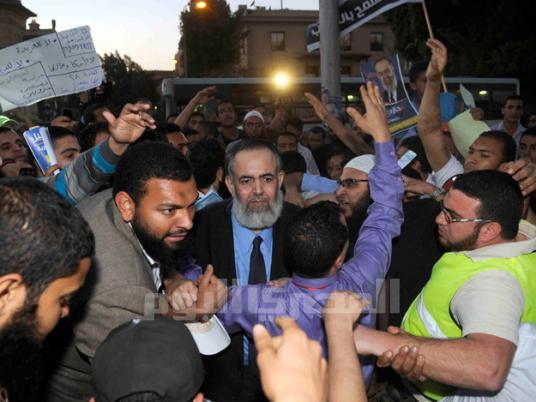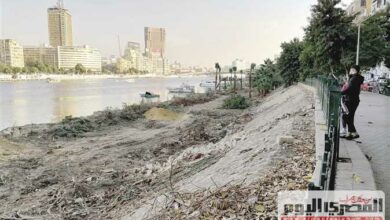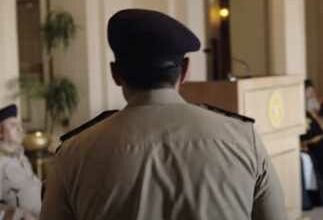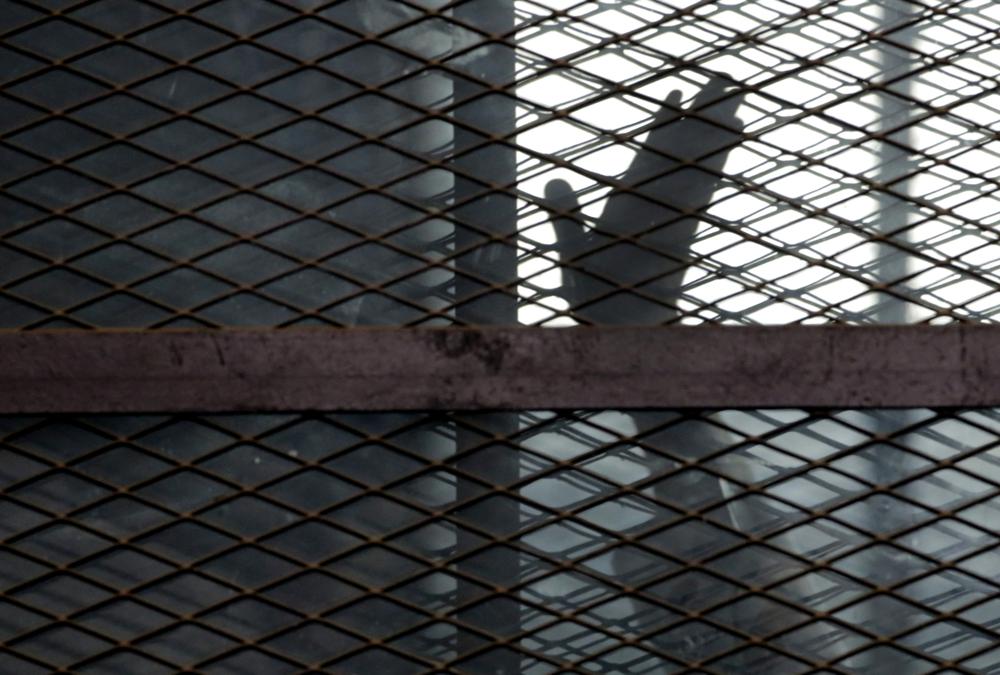
The final word on the exclusion of 10 potential candidates from the presidential race makes headlines in most newspapers. Today’s press highlight that prominent presidential hopefuls Omar Suleiman, Khairat al-Shater and Hazem Salah Abu Ismail are out of the race for good after the Presidential Elections Commission turned down their appeals Tuesday.
State-run Al-Akhbar newspaper reports the commission ruled that Suleiman, the former intelligence chief under Hosni Mubarak, had not submitted the required voter signatures before the deadline and had no right to an extension to file the 31 missing signatures. Shater, the Muslim Brotherhood’s primary candidate, was excluded because he did not receive a legal rehabilitation for his conviction by a military tribunal in 2007, reports Al-Akhbar. After much heated debate about the nationality of Salafi preacher Abu Ismail’s mother, the commission said it had received official documents from the US Department of State proving that she held dual citizenship, which makes him ineligible to run.
In response to the decision, Abu Ismail’s supporters attempted to break into the commission building and clashed with security forces securing the headquarters in Heliopolis Tuesday evening, reports state flagship paper Al-Ahram. Abu Ismail had alleged that the documents the US provided to the commission were not authentic and had no watermarks, adds the paper.
Independently run Al-Tahrir newspaper provides a more colorful account of the reaction of the 51-year-old lawyer-turned-preacher. The private daily reports that the commission had asked a group of Salafi preachers to look at the documents proving that Abu Ismail’s mother was an American citizen and convey that truth to his supporters to help persuade them to end their sit-in outside the commission. As soon as Abu Ismail caught wind that some Salafi figures were inside verifying the documents, he rushed to the commission and tried to break into the building, the paper claims. He also called up Salafi lawyer Mamdouh Ismail, who was inside at the time, and accused him of betrayal for backing the commission’s position, reports Al-Tahrir.
Al-Ahram emphasizes the reactions of other excluded nominees, reporting that Shater responded by saying that Mubarak’s regime has not fallen. Private daily Al-Shorouk quotes him as announcing his support for the Brotherhood’s backup candidate, Mohamed Morsy, the president of the group’s Freedom and Justice Party.
The 62-year-old businessman went on to voice harsh criticism of the military and the elections board. According to the paper, Shater vowed to “mobilize marches in all governorates and not only in Tahrir Square after it became clear that there is an intention to rig [the vote] and to prepare money in order to buy as many votes for the remnants of the old regime.”
Apparently going quietly, Suleiman expressed his full respect for judicial verdicts and declined to comment on the decision, reports Al-Ahram.
Liberal Al-Wafd newspaper highlights on its front page an opinion poll conducted by United Press International news agency, reporting that Amr Moussa has the support of more than 30 percent of those surveyed. Abu Ismail ranked second in the poll before his disqualification was finalized yesterday, and moderate Islamist Abdel Moneim Abouel Fotouh was third. The poll suggested that Abu Ismail’s exclusion would prompt 32 percent of his supporters to vote for Abouel Fotouh and 29.3 percent for Moussa, according to the paper.
Al-Ahram quotes General Mamdouh Shahin, member of the Supreme Council of the Armed Forces, as affirming that the military is determined to hold the presidential poll on time, apparently in response to the uproar that followed SCAF head Hussein Tantawi’s comments. Earlier this week at a meeting with leaders of political parties, Tantawi had reportedly said the presidential election would not be held until the Constituent Assembly drafts the new constitution. The statement came on the heels of a court verdict that ordered the re-formation of the assembly, making it unlikely that a finished document will be approved before a new president is expected to take office.
Al-Ahram reports that political parties reached a consensus on the makeup of the new assembly during a meeting with members of the military-appointed Advisory Council. Political forces reportedly agreed that all the members should come from outside Parliament. (Half the members of the dissolved assembly were MPs, which left little room for various social groups to be represented.) The paper quotes Abdullah al-Moghazy, assistant secretary general of the Advisory Council, as saying that the attendees had discussed a proposal to limit each political party and religious group’s representation to 5 percent of seats. In the meantime, Al-Ahram quotes Sobhy Saleh, an FJP MP, as saying that his party seeks to achieve national consensus and is willing to accept that the Constituent Assembly includes no current lawmakers. However, Al-Shorouk quotes an anonymous parliamentary source as saying that there is an inclination to allocate 19 out of the assembly’s 100 seats to MPs.
Islamist columnist Fahmy Howeidy renews his opposition to the Muslim Brotherhood’s decision to field a presidential candidate. Despite his long-held support of the nation’s oldest Islamist organization, Howeidy has recently used his Al-Shorouk column to critique the Brotherhood’s political performance.
“The Egyptian state with its historical weight is bigger than being ruled by a faction that lands from outer space all of a sudden, has no idea about administration and has limited political experience,” Howeidy wrote in Wednesday’s column.
Egypt’s papers:
Al-Ahram: Daily, state-run, largest distribution in Egypt
Al-Akhbar: Daily, state-run, second to Al-Ahram in institutional size
Al-Gomhurriya: Daily, state-run
Rose al-Youssef: Daily, state-run
Al-Dostour: Daily, privately owned
Al-Shorouk: Daily, privately owned
Al-Wafd: Daily, published by the liberal Wafd Party
Youm7: Daily, privately owned
Al-Tahrir: Daily, privately owned
Freedom and Justice: Daily, published by the Muslim Brotherhood’s Freedom and Justice Party
Sawt al-Umma: Weekly, privately owned
Al-Arabi: Weekly, published by the Nasserist Party
Al-Nour: Official paper of the Salafi Nour Party




